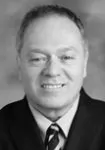The Eleventh Circuit recently refused to set aside a bank fraud conviction, rejecting defendant's argument that advances in technology should change the way court's adjudicate alleged violations of attorney-client privilege. While the appellate court agreed that defendant's attorney-client privilege was breached by federal prosecutors, the court refused to overturn defendant's 78-month sentence because he had failed to meet his burden to show he was prejudiced by the privilege breach.
The defendant, Stephen DeLuca, the president and sole shareholder of Delco Oil, Inc. in Florida, was convicted (after a mistrial) of fraudulently submitting false statement to lending institutions regarding the company's accounts receivable and inventory and obtaining loans on reliance on the fraudulent information.
When the FBI raided Defendant's office and seized computers and hard drives prior to his indictment, DeLuca notified the government that the data included privileged communications. The government offered, and DeLuca signed, a stipulation providing a procedure to exclude privileged communications from the investigation. It provided that an FBI computer analyst would segregate any communications to or from DeLuca's attorneys based on a list of attorneys provided by DeLuca. These segregated communications would then go to an FBI "filter team" who were not members of the prosecution team, who would notify DeLuca if it believed any communications were not privileged, or that the privilege had been waived. DeLuca could then dispute the determination, and the communications at issue would not be provided to the prosecution team until a magistrate judge ruled as to privilege.
DeLuca first became aware that his attorney-client privilege had been violated when, in 2013, when one of his emails to his lawyer turned up as government exhibit list prior to trial. A court hearing determined that one of the members of the "filter team" unilaterally decided that the stipulation with DeLuca was not in effect for various reasons, and certain potentially privileged emails slipped through to the prosecution team including the one listed as an exhibit.
DeLuca filed a motion to dismiss for the government's violation of his attorney-client privilege and the stipulation. Following an evidentiary hearing, the trial judge denied DeLuca's motion to dismiss finding that while several privileged communications slipped through the filter, but held that DeLuca had not shown that he was prejudiced by the violations, and that even if he had established a constitutional violation, neither dismissal of the indictment nor vacature of his convictions was appropriate. The court found that its determination would be the same even if the government bore the burden to show the lack of prejudice.
DeLuca appealed, contending that it is impossible for a defendant to show prejudice because there is no way to track whether the government accessed privileged materials or how the government used the privileged material it accessed. The government countered that electronic storage and better computer software may in fact make it less likely that privileged material will be reviewed because a computerized search will be able to screen out potentially privileged information before it is reviewed by human beings. On October 25, 2016 the Eleventh circuit panel issued a per curiam opinion denying DeLuca's appeal.
The content of this article is intended to provide a general guide to the subject matter. Specialist advice should be sought about your specific circumstances.
We operate a free-to-view policy, asking only that you register in order to read all of our content. Please login or register to view the rest of this article.


